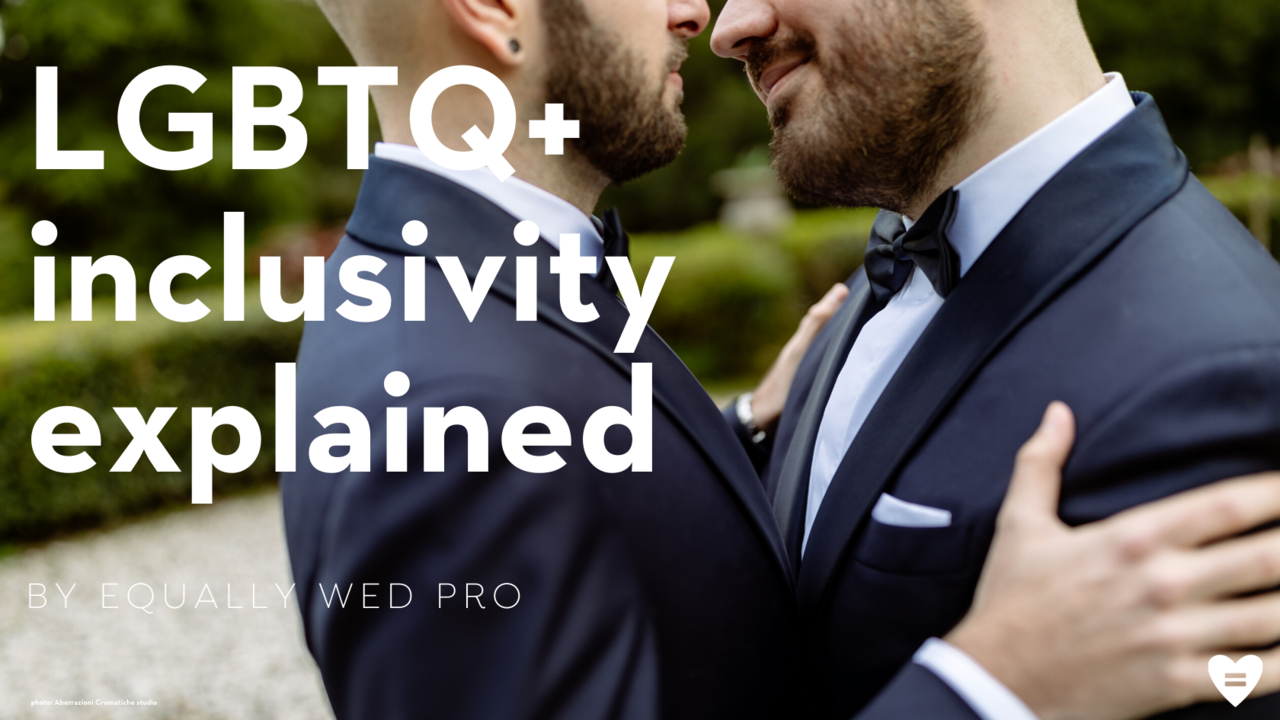What does LGBTQ+ inclusive mean?

By Kirsten Palladino
With the advent of marriage equality, more wedding pros are opening their business doors to the LGBTQ+ community. As this welcoming happens, it’s important to take note of the level at which businesses are saying yes to equality.
I’ve found that it’s happening on a gradient level, from “willing to take money from gay people” all the way to celebrating the full spectrum of the LGBTQ+ community.
To be fully LGBTQ+ inclusive means that the business has taken at least these measures to embrace all couples:
- Uses gender-neutral language throughout its website, i.e., couples instead of bride and groom.
- Uses gender-neutral language in its social media posts and bio, i.e., couples instead of bride and groom.
- Uses gender-neutral language in its contracts, i.e., couples instead of bride and groom.
- Demonstrates inclusivity in communicating about the wedding day, such as calling the attendants the wedding party instead of the bridal party and referring to the getting-ready area as the “couple’s suite” or the “wedding suite” instead of the “bridal suite.”
- Shows a variety of couples in its imagery, not just cishet couples. (Cishet means cisgender and heterosexual. Cisgender is the opposite of transgender. Cisgender people identify with the gender they were assigned at birth.)
- Celebrates LGBTQ+ couples and marriage equality with efforts that go beyond language by ensuring all other vendors they recommend are also LGBTQ+ inclusive, and work with vendors new to LGBTQ+ weddings to make sure the couple is treated with respect.
- Trains entire staff to treat LGBTQ+ couples and event guests with dignity.
- Does not tokenize LGBTQ+ people.
- When possible, speaks out for LGBTQ+ equality and does not do business with anti-LGBTQ+ businesses.
- Understands that there are differences between LGBTQ+ weddings and straight weddings, such as double proposals and inherent challenges that LGBTQ+ couples face in society and their families.
If a business is not demonstrating all of the above but verbally proclaims interest in working with the LGBTQ+ community, we’d call them LGBTQ+ friendly, meaning they have more work to do in this area but they're supportive of LGBTQ+ marriages.
It takes sincere effort to be fully and authentically LGBTQ+ inclusive. To become LGBTQ+ inclusive certified and earn your CIP (certified inclusive professional) credential, take the digital course at equallywedpro.com.
Photo by Aberrazioni Cromatiche studio
